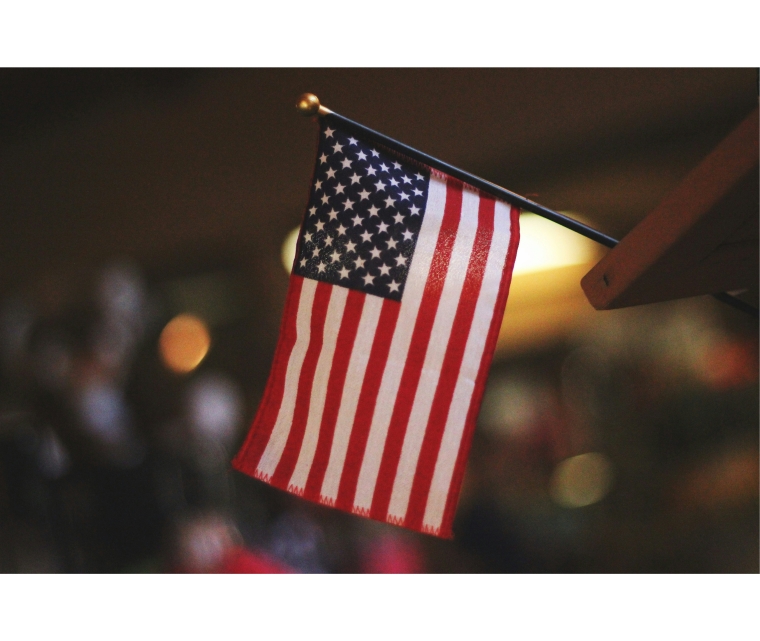
Huge state subsidies paid to farmers in the United States look likely to escape Donald Trump’s cost cutting axe.
American subsidies have long been opposed by farmers in this country, who lost Government support 40 years ago, but have to compete in world markets with farmers who get a helping hand from the State.
The Trump administration has been trying to reduce spending with mass layoffs and the abolition of entire state programmes. But American agricultural producers have long had support in multiple forms from Washington and this looks set to continue.
“My own opinion is that farm subsidies are safe,” says the Associate Professor of Ag Economics at Kansas State University, Gregg Ibendahl, “Trump really likes farmers.”
In addition, farm states like Kansas and Iowa traditionally vote Republican.
According to the American think tank, USAFacts, farm subsidies were worth $US9.3 billion last year and this made up 13.5% of net farm income. But there has been little fuss about this in an otherwise controversial budgetary process in Washington.
Most agricultural subsidies in the United States are described in the 2018 Farm Bill, which was supposed to be renewed in 2023 but instead keeps on being rolled over each year. Other farm issues crop up in the current budget law, H.R.1. which Trump has nicknamed One Big Beautiful Bill (OBBB).
This bill has been passed by the House of Representatives and is currently going through the Senate.
OBBB is mainly intended to bed in tax cuts from Trump’s previous administration which would have otherwise expired. But it also endorses the provisions of the 2018 Farm Bill and some commentators think OBBB or its successor statutes will eventually assume all the responsibilities of the old law. Where OBBB would save rural sector money is by cutting back on Federal support for Food Stamps. This programme dates back to the Great Depression and has been renamed the Supplementary Nutritional Assistance Programme (SNAP). SNAP cutbacks include toughed work requirements for recipients, harsher rules on dependent minors and even removing internet fees from SNAP recipients’ lists of household costs.
But the fine print of OBBB also reveals support and even potentially enhanced benefits for farmers. According to the US Department of Agriculture (USDA), current subsidies include monetary payments to help manage agricultural market volatility, to mitigate risks from natural disasters and to offer access to capital for operating and growing farm businesses. These programmes look set to be continued or improved.
“S.10101 amends and extends commodity support programs,” an OBBB explanatory document states.
“For example, the section extends the Price Loss Coverage Program, the Agricultural Risk Coverage Program, and Dairy Margin Coverage through crop year 2031.
“Further, the section addresses programmes and issues such as marketing loans, disaster assistance, the sugar programme, federal crop insurance, the Livestock Indemnity Programme, and the establishment of a Poultry Insurance Pilot Programme.”
There has also been speculation that OBBB could compensate export-oriented American farmers for any costs they face from countries that retaliate against Trump’s tariffs. The wording of the bill gives some support to this view.
“S.10103 directs USDA to conduct a program to encourage the accessibility, development, maintenance, and expansion of commercial export markets for U.S. agricultural commodities,” the congressional note explains.
“This section also provides $US285 million in mandatory funding for the program for FY2027 and each fiscal year thereafter.”
OBBB also addresses a range of other issues including animal diseases, pest control, agricultural research and the development of specialist crops.
A report by the Congressional Budget Office (CBO) has found OBBB would be fiscally expensive. It would increase “debt held by the public at the end of 2034 from 117.1 % to 127.7 % of gross domestic product.” This would be three times the pro rata level of current New Zealand Government debt. However, an alternative set of accounts produced by Republican senators argues OBBB would actually save money.
Taken together, the multitude of farm subsidies in the US might seem to create an impenetrable web for producers from other countries. But the New Zealand beef industry has managed to thread its way through a matrix of special payments, and sell large quantities of lean beef for the US hamburger market.
The Meat Industry Association (MIA) is declining all comment on the latest developments in the United States. However, it maintains its opposition to farm subsidies in principle.
“We dislike farm subsidies,” says the MIA chief executive, Sirma Karapeeva. “They are very distortionary and shield producers and exporters from real market conditions.”
4 Comments
“Trump really likes farmers.”
Entire industries favoured, or held to ransom, by the capricious whims of an individual.
Hardly unique though. President Clinton imposed a tariff on Australian & NZ lamb imports the funds of which were dedicated to the USA equivalent farmers. Only around 3% of US red meat consumption but nevertheless that in itself reveals the importance to American politicians of the rural lobby.
Perhaps if they stopped injecting growth hormone into their livestock, they might be able grow their exports? Currently, for e.g., I believe that the EU blocks the import of beef grown with injected growth hormone.
I wonder what their production of red meat is broken down to locally consumed versus exported?

We welcome your comments below. If you are not already registered, please register to comment
Remember we welcome robust, respectful and insightful debate. We don't welcome abusive or defamatory comments and will de-register those repeatedly making such comments. Our current comment policy is here.